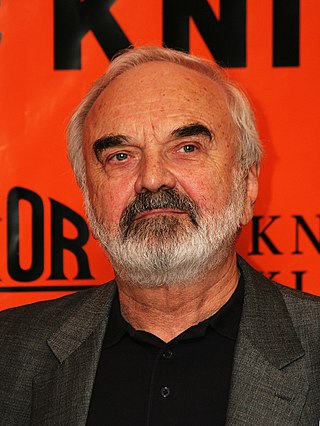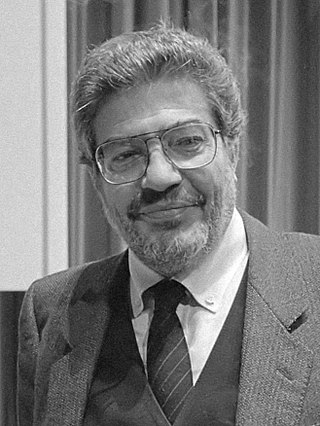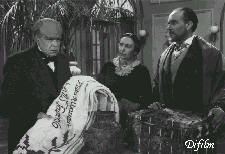Related Research Articles

Zdeněk Svěrák is a Czech actor, humorist, playwright and scriptwriter, and one of the most well-known and popular Czech cultural personalities. Since 1968 he has appeared in 32 films.

Ettore Scola was an Italian screenwriter and film director. He received a Golden Globe for Best Foreign Film in 1978 for his film A Special Day and over the course of his film career was nominated for five Academy Awards for Best Foreign Language Film.

Carlo Lizzani was an Italian film director, screenwriter and critic.

Christian-Jaque was a French filmmaker. From 1954 to 1959, he was married to actress Martine Carol, who starred in several of his films, including Lucrèce Borgia (1953), Madame du Barry (1954), and Nana (1955). In 1961 he married Laurence Christol

Rodolfo Kuhn was an Argentine film director, screen writer and producer.

Women's Refuge is a 1946 Argentine film directed and written by Arturo S. Mom with the script written by Emilio Villalba Welsh. The film starred Aída Alberti and Orestes Caviglia, and Bertha Moss. The film is centred on women with feminist themes.
La Caraba is a 1947 Argentine film.
El Calavera is a 1954 Argentinian film.

The Berlin International Film Festival, usually called the Berlinale, is a major international film festival held annually in Berlin, Germany. Founded in 1951 and originally run in June, the festival has been held every February since 1978 and is one of Europe's "Big Three" film festivals alongside the Venice Film Festival held in Italy and the Cannes Film Festival held in France. Furthermore, it is one of the "Big Five", the most prestigious film festivals in the world. The festival regularly draws tens of thousands of visitors each year.

The Grandfather is a 1954 Argentine family drama film directed by Román Viñoly Barreto and written by Emilio Villalba Welsh. It was based on the novel by Benito Pérez Galdós. Starring Enrique Muiño and Mecha Ortiz.

Tatjana Sais, Lady Greene was a German film actress. She appeared in 20 films between 1937 and 1967 and was a member of the jury at the 1st Berlin International Film Festival. She was married to Günter Neumann and later to Sir Hugh Greene.

The 4th annual Berlin International Film Festival was held from 18 to 29 June 1954. This year's festival did not give any official jury prizes, instead awards were given by audience voting. This continued until the FIAPF granted Berlin "A-Status" in 1956.

The 16th annual Berlin International Film Festival was held from 24 June to 5 July 1966.
Franz Seitz Jr. was a German film producer, screenwriter and film director. He produced more than 70 films between 1951 and 2006. He was a member of the jury at the 16th Berlin International Film Festival.

The 20th annual Berlin International Film Festival, usually called the Berlinale, was opened on 26 June 1970 with French-Belgian film Klann – grand guignol by Patrick Ledoux and scheduled to end on 7 July. However, on 5 July the competition was cancelled and no major prizes were awarded owing to a controversy surrounding the participation of Michael Verhoeven's West-German anti-war film o.k.
Francis Cosne was a French film producer and screenwriter. He produced more than 30 films between 1948 and 1979. In 1972, he was a member of the jury at the 22nd Berlin International Film Festival.

The 28th annual Berlin International Film Festival was held from 22 February to 5 March 1978. Director Wolf Donner successfully managed to shift the festival's date from June to February, a change which has remained ever since. This was the first year the festival was held in February. The festival opened with Opening Night by John Cassavetes and closed with Steven Spielberg's out of competition film Close Encounters of the Third Kind.

The 63rd annual Berlin International Film Festival took place in Berlin, Germany, between 7 and 17 February 2013. Chinese film director Wong Kar-wai was announced as the president of the jury and his film The Grandmaster was the opening film of the festival.

The 66th Berlin International Film Festival was held from 11 to 21 February 2016, with American actress Meryl Streep as the president of the jury. The Honorary Golden Bear for lifetime achievement was presented to German cinematographer Michael Ballhaus.
Su esposa diurna is a 1944 Argentine romantic comedy film, directed by Enrique Cahen Salaberry. It stars Alejandro Flores, Jacqueline Dumont, Francisco Álvarez and Nury Montsé. The script was written by Alejandro Verbitsky and Emilio Villalba Welsh.
References
- ↑ "Berlinale 1966: Juries". berlinale.de. Retrieved 2010-02-22.